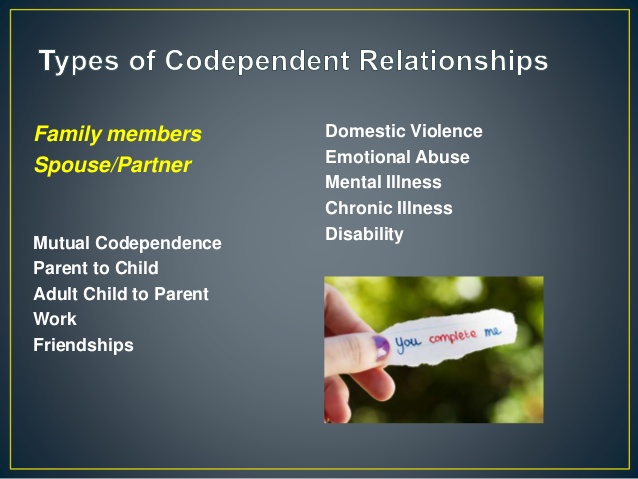When you hear the word Codependency, do you automatically think that it’s about being in a relationship with a partner who has an addiction? Do you feel that the relationship is the problem and that there is no possibility that it’s you who is codependent?
Codependency is much more than that. Codependency is about the relationship that you have with yourself, not someone else.
When you are codependent you feel that to be acceptable to yourself and to others, you hide who you are and become who you aren’t. As codependents, we have a tendency to lose ourselves in relationships.
But how do you go about looking at yourself and whether you are codependent on the other person? Well, you need to look at the set of characteristics and patterns of the self-defeating behaviour that you have developed that helps you to cope. Therefore, the first step is to look at your childhood and how and what was it revolved around? Addiction? Emotional instability? Trauma? Physical illness? Mental Illness?
Codependency is fueled by circumstances during childhood that you have no power to change. It is triggered by our inner sense of abandonment, although It may not be realistic. When a child is raised in a dysfunctional setting, where the parent or caregivers sense of self is tied up in distracting behaviours, e.g. addiction or in mental illness, it is extremely difficult to model healthy behaviours. Feelings are pushed down and ignored and distracted from by substances, such as alcohol or acted out in arguments due to the manifestation of anger as a maladaptive emotion.
Looking at your parents, it isn’t about blaming them because they did the best they could with what they knew themselves from behaviours modelled to them by their parents, however, they had no idea of what functional communication really looked like nor did they have any idea of how to express feelings in healthy ways. So, you learnt to and probably continue to repress your negative emotions, and instead express yourself through anger. Because unbeknownst to you it was covering up your underlying sadness, hurt, pain, fear, shame, disappointment, rejection, helplessness and powerlessness because you lack a sound emotional foundation. Your hurts, heartaches, and disappointments have left a powerful imprint on your brain and resulted in it now affecting your emotional responses in life.
A symptom that inflicts many codependents, is the phrase “tyranny of shoulds”, a concept introduced by a German psychiatrist, Dr Karen Horney. Dr Horney stated that in one’s yearning to become our true selves, the self-critical persona develops from the anxiety that comes from trying to attain it. Two characteristics of the self-critical persona are low self-worth and self-criticism.
Darlene Lance, a clinical psychologist refers to codependency as the disease of the lost self and says “Childhood shame and trauma conceal their real, core self, which one cant’s access. Instead, codependents develop a persona in the world that reacts to others, to their own self-criticism, and to their imagined ideal of who they should be. To be acceptable to others and to yourself, you hide who you are and become who you aren’t.”
Codependents are in search of the one person who can make them whole seeking that person who can fill the void and feed that emotional neediness. The focus is placed on the other rather than ourselves which results in the harmful dance of codependency. Codependents tend to lose themselves in the relationship.

Do these characteristics sound familiar?
- Low self-worth
- Care-taking
- Repression
- Obsession
- Controlling
- Denial
- Compliance
- Denial
- Avoidance
- Dependence
- Lack of trust
- Sex problems
- Trust
- Self-criticism
This list may feel overwhelming but these characteristics are driven in most cases by fear and shame. Fear and shame reside at the centre of codependency because we fear that what we experienced in childhood will happen again, and shame that we are in some way responsible for it.
In his classic recovery title, Healing the Shame that Binds You, John Bradshaw wrote, “A person with internalized shame believes he is inherently flawed, inferior and defective. Such a feeling is so painful that defending scripts (or strategies) are developed to cover it up. These scripts are the roots of… all forms of addiction… To be shame-bound means that whenever you feel any feeling, need or drive, you immediately feel ashamed. The dynamic core of your human life is grounded in your feelings, needs and drives. When these are bound by shame, you are shamed to the core.”
A vicious cycle is created when you try to numb out the shame, for example, if deep down, you feel unloveable—you may act out with risky behaviour, which validates this belief that you are unlovable.
Ask yourself these questions
- Are you having difficulty making decisions in a relationship?
- Do you have difficulty identifying your feelings?
- Are you having difficulty communicating in a relationship?
- Do you value the approval of others more than valuing yourself?
- Do you lack trust in yourself and have poor self-esteem?
- Do you have fears of abandonment or an obsessive need for approval?
- Do you have an unhealthy dependence on relationships, even at your own cost?
- Do you have an exaggerated sense of responsibility for the actions of others?
It may seem overwhelming if you answered yes to one or more of these questions, however, changing these behaviours is possible, through a process of self-awareness and the ability to let go. Soothing Minds Counselling & Psychotherapy can help you in this process. Call now 8448 1106.
